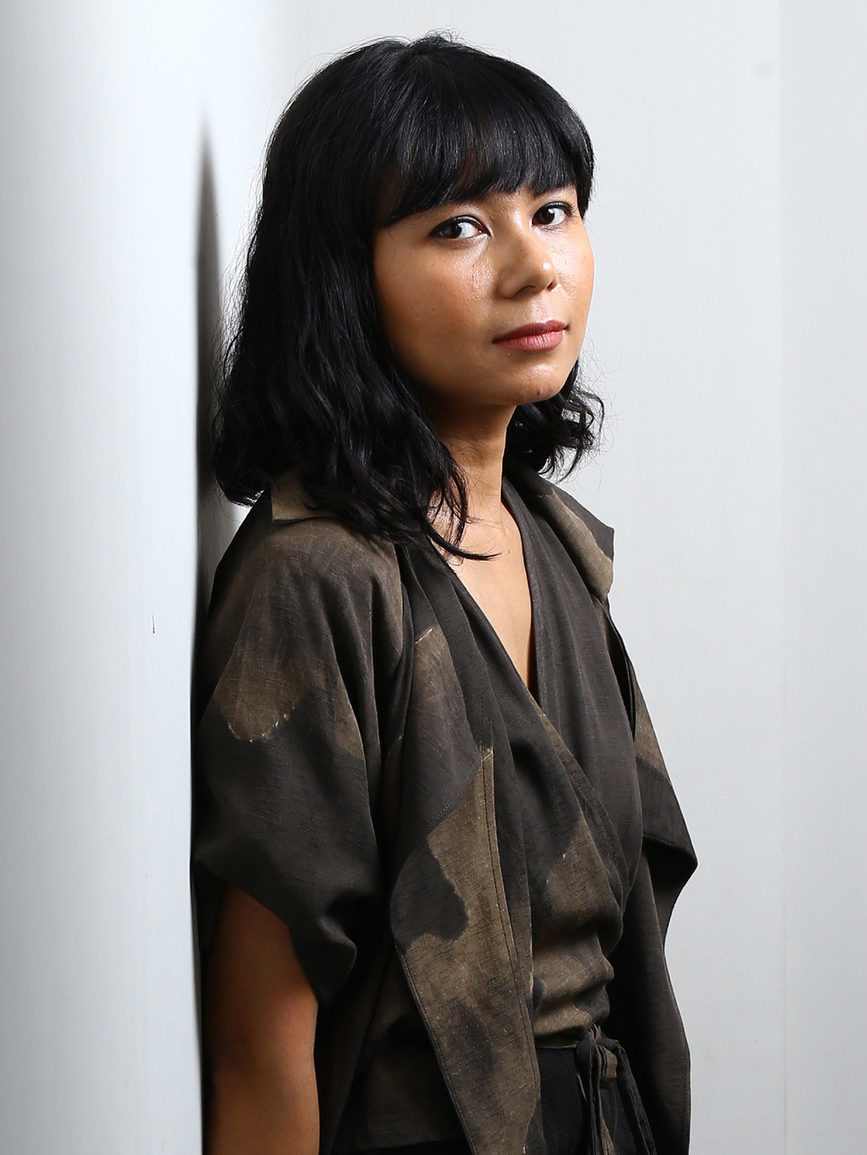
- Interviews
The Great Small World of Kamila Andini
Introducing western audiences to Indonesian culture is, in itself, fascinating. But there’s something unique about the way Kamila Andini sees her milieu. “I like to show not only the macro-side of a character but also the micro-side,” she said, “something internal.”
The 35-year-old director has already made three features: The Mirror Never Lies in 2011, The Seen and Unseen in 2017 and Yuni in 2021. She is now in post-production of her latest work, titled Before, Now, & Then. In each one, we witness Andini’s evolution as a filmmaker but also as a woman growing up in Indonesia. All of her three films are driven by girls, each a little older than the one before, all somehow ostracized by society.
Andini’s father, Garin Nugroho, is also a film director. Even so, it wasn’t always clear that Kamila was going to follow her father’s path. “I grew up without even wanting to be a filmmaker, actually,” she confessed. “It was too close, too obvious for me.” She tried dance, painting, and music, but only with film did she feel at home: “This is the medium that allows me to grow as a person as well. Up until now [I see] no end to it.”
Filmmaking became, above all, a form of self-exploration. “Each story allows me to find out more about who I am,” she explained. “I always start with a question I want to work with. It’s always personal.”
Working on the first film introduced her to the art and craft of filmmaking. In her second feature, she explored her identity as an Indonesian female filmmaker. “We are not very rational people,” she said referring to the Indonesian population. “We believe what we believe. That’s who we are!”
Yuni, which premiered last year at the Toronto International Film Festival, tells the story of a spirited adolescent girl who won’t succumb to the pressures of her surroundings to either accept matrimony or follow a career in the education field. “That’s also what I felt when I was at that age,” Andini said referring to her heroine. “I didn’t know what I wanted. I think it’s okay not to know. Curiosity is there for you to follow.”
In her part of the world, she says, people “live to survive, not to dream. For girls, the options are only being a teacher, working for the government, or working in a factory. How can you dream about being a fashion designer when there’s no fashion designer around you? That’s why I wanted [Yuni] to be dreamy, in a way.”
Andini beamed talking about her protagonist’s love for the color purple: “It’s amazing to have that kind of obsession, to have that kind of ownership, this passion that doesn’t even matter to anyone else!”
Feelings are processed differently in her culture. “We don’t describe [feelings]. We feel and perform and express [them].” In her film The Seen and Unseen, for example, dance takes the place of dialogue. Dance is dialogue. Yuni and Yoga, the heroes of her latest film, find an emotional outlet through poetry.
The famous poem Rain in June, by Sapardi Djoko Damono, provided a kind of sad ballad to the “anomaly of a girl who has to bloom [before] her time.” For the character, though, poetry becomes a sanctuary, a refuge away from societal pressures.
Yuni originated in a conversation Andini had with a domestic worker about the latter’s daughter, who had gotten married in her teen years. Although this was not the first time she had heard such a story, this one got “stuck in her head.” Having two little daughters herself made the decision easier.
Her motto is clear: “I wanted to talk about women in general, ” she went on. “I wanted to know who I am as a woman in Indonesia, what is [our] position within society, religion and politics as well. Where are we? How far are our voices heard in the society?”
A feistiness, a willingness to fight in order to protect her kind, breaks through Andini’s soft-spoken words. Her eyes seem suddenly more focused, pausing a little after each statement: “I want to find out what is really liberation for a woman. [Yuni] is about liberation. During the process, it liberated me as well.”
Then, she smiled a little shyly: “For a filmmaker coming from an eastern culture, it is not easy to make [a story] like Yuni. I told my producer, ‘I need this film to be very blunt and honest. I need to be blunt and honest as the filmmaker’.”
She wasn’t sure that she could pull it off: “You don’t see people changing clothes in front of you often [in my culture]. If you do, that means that person is very close to you. [But] that’s what I wanted. I wanted the audience to become [Yuni’s] friend … There is nothing hidden. As a filmmaker, I wanted to say everything I had to say.”
Opening a window to the world of women is what keeps Andini’s enthusiasm for her art, and what renders it limitless. It is the flame that burns beneath her creativity. The fact that her audience might not be completely ready to receive her stories is not a deterrent for her. On the contrary, it is an incentive.
“One of the things I love about filmmaking is that it creates possibility,” she offered; “I don’t think it matters a lot if people get it or not because, in the end, it is all about diversity. Film after film, there will be one that will acknowledge something within everyone.”
Her next film, titled Before, Now, & Then, is a period film about a woman’s life inside a marriage. The situation, once again, mirrors her own. But her repertoire won’t finish there. “I have a lot of things to say.” Then, she smiled with a hint of mischievousness.

